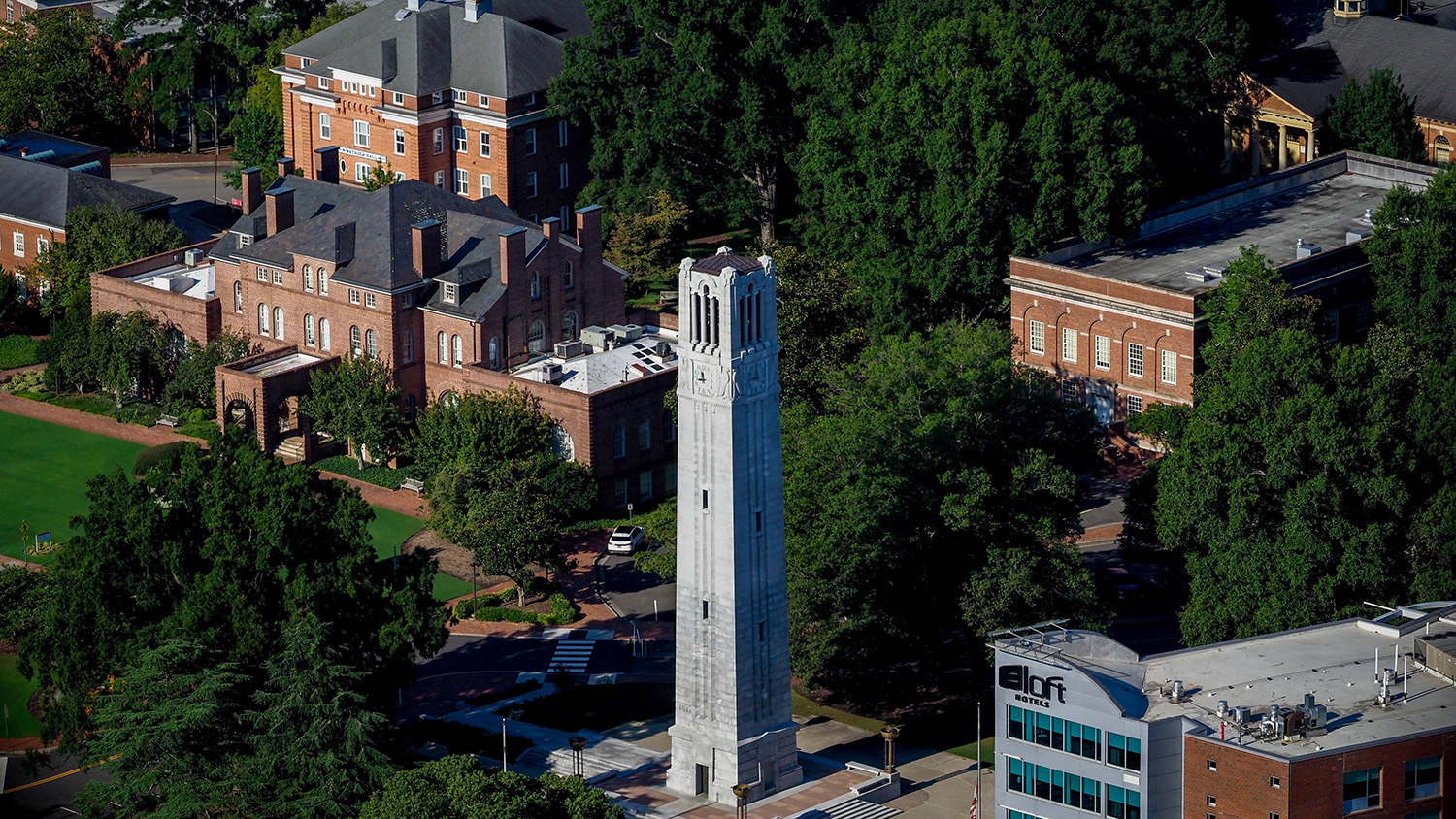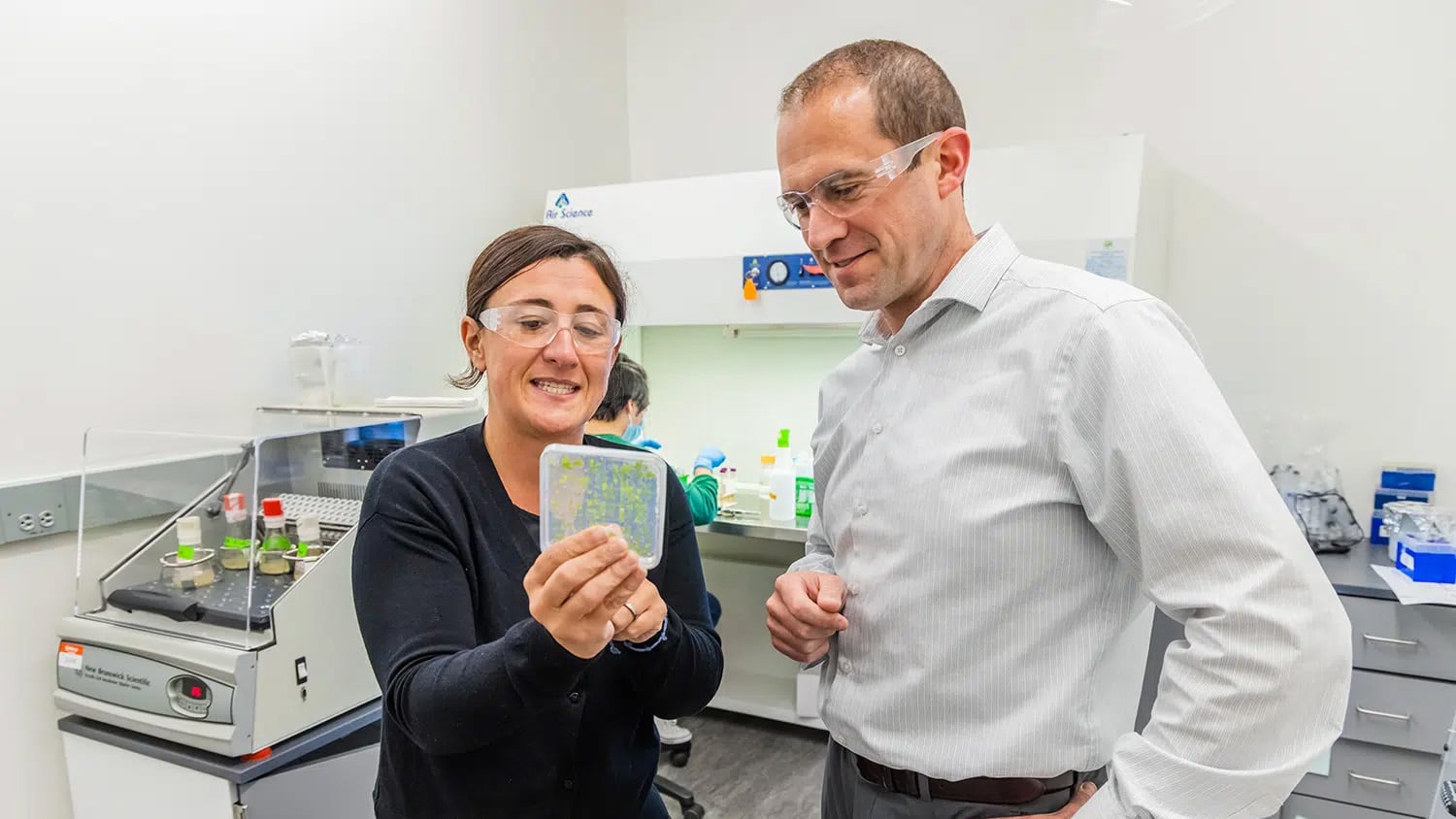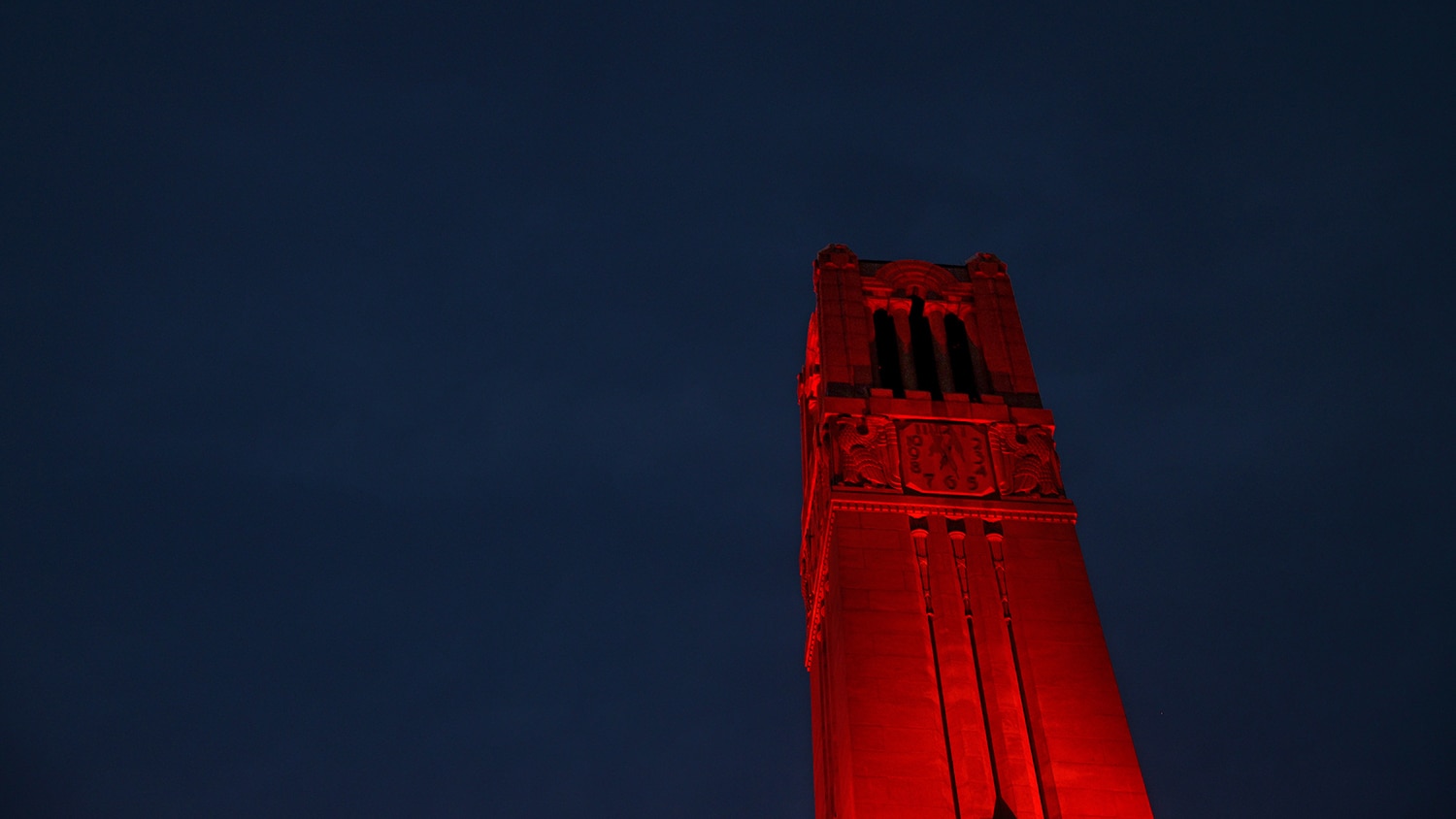Diving Into Data
New Hunt Library Dataspace enables researchers to mine huge data sets and get results.
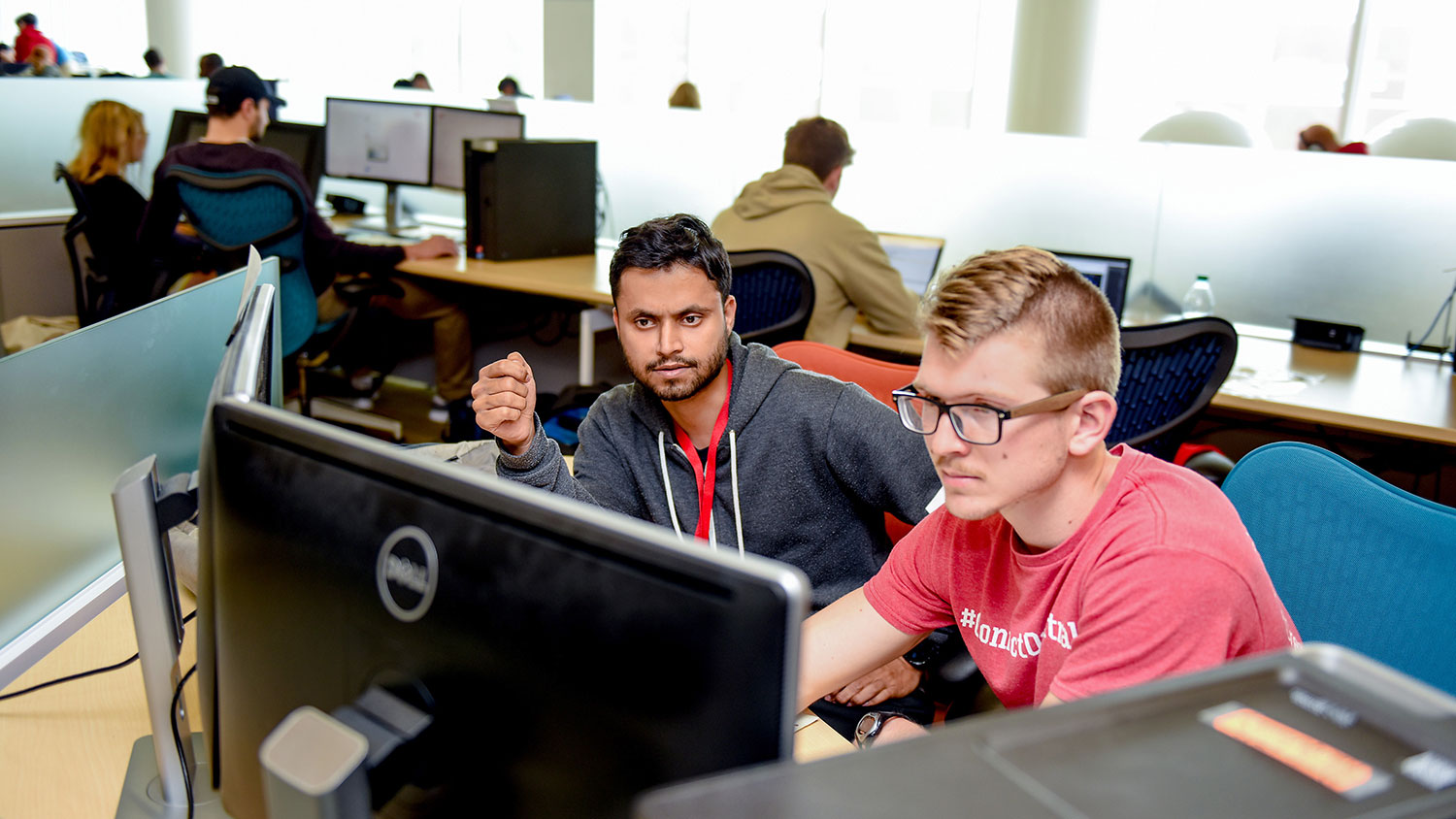
Google “data science” and you’ll find headlines heralding it as “changing the world,” “the best job in America,” “the next big thing.”
Why? And what exactly is it?
In a nutshell, data science is a multidisciplinary field that employs different methods to extract knowledge and insights from data. It’s being used for everything from improving human health to predicting airline delays.
And as data science becomes increasingly popular among all sorts of industries, the NC State University Libraries has planted itself firmly on the cutting edge.
The Libraries’ new Dataspace, which opened
Outfitted with specialized hardware and software, and staffed with data science experts, the Dataspace helps users develop critical data science skills, explore big data and build innovative presentations.
In its first semester, Ciccone says, the Dataspace racked up 3,715 logins and 926 unique users. And researchers used its drop-in data science assistance nearly 600 times.
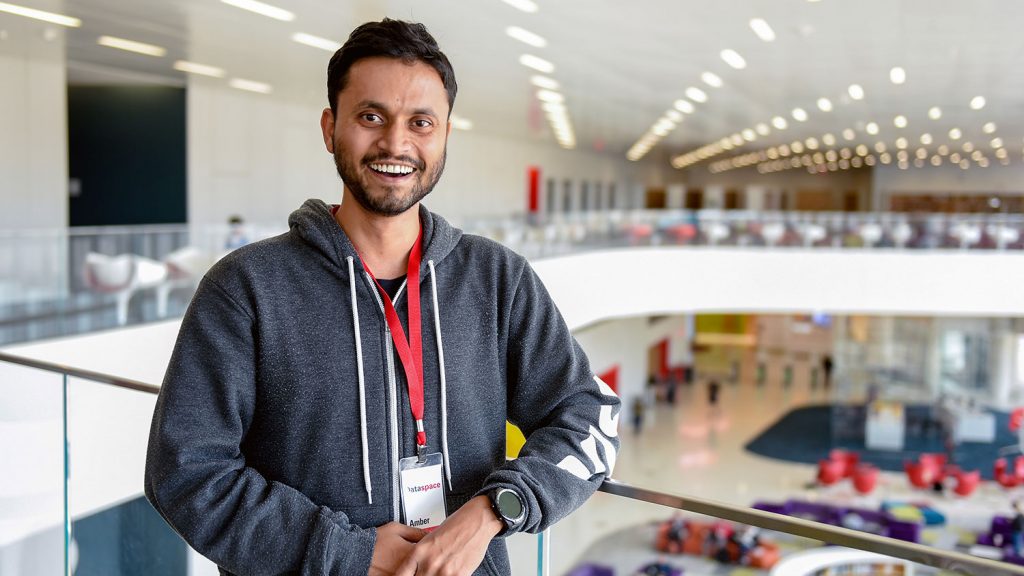
Staffer Amber Raza, a computer science master’s student and an expert in the Java and Python programming languages, says he enjoys the challenge of helping people with complex – and massive – data sets.
“Different people come in with different types of problems, some of which I might not have seen before,” he says. “Working together with the patron and coming up with solutions is my favorite part of the job.”
The Dataspace boasts “huge beast” computers, Raza says, with up to 128 gigabytes of memory, significantly more than a typical computer’s 16GB.
Users can reserve the workstations and find out online which experts will be on hand at any given time. And, since not every problem can be solved quickly, Raza and the other staffers often work with users over the course of multiple days.
“Our graduate student data science consultants have allowed us to reach and assist a larger number of students,” Ciccone says. “We’ve been really pleased with the expertise they provide, their customer service skills and their eagerness and ability to collaborate with the people who come to the space.”
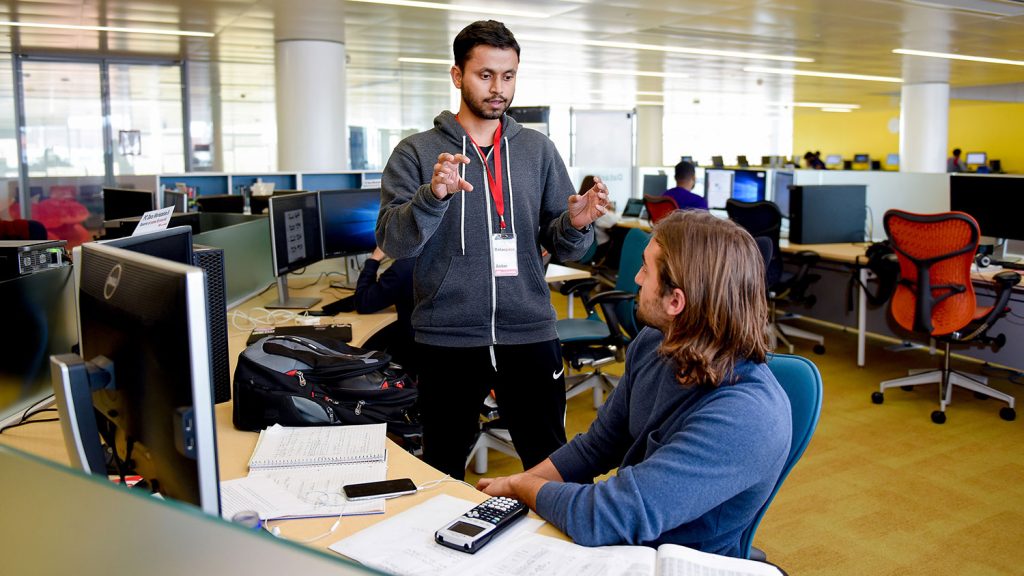
Ciccone leads a team of eight librarians in the Department of Data and Visualization Services who provide one-on-one consultative services in all areas of data science, in addition to teaching a number of data and visualization workshops.
In January they expanded the Dataspace concept to main campus, opening a Data Point in the D.H. Hill Jr. Library. Like its Centennial Campus counterpart, the Data Point has specialized workstations and staff on hand to help.
“I think data science has a ton of potential,” Raza says. “Working on an immense amount of data and making some sense out of it, I think, is the biggest thing that is happening out there right now.”
- Categories:
